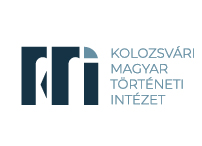Kolozsvári Magyar Történeti Intézet
Welcome to the official site of the Department of History in Hungarian from Cluj!
In 2012, based on the new educational law, The Hungarian Institute of History at Cluj was established (together with other similar institutes) within the Babeș-Bolyai University’s Faculty of History and Philosophy. The mission of the institute is to facilitate the collaboration, organization and support of academic-level instruction of history and related sciences in the Hungarian language.
The Hungarian’s teaching of history has a distinguished past. Teaching in the Hungarian language was suppressed in the eighties, but after 1990 started to flourish once again. The number of professors and students increased significantly, as did the number of educational offerings. This progress culminated in the foundation of the Hungarian Institute of History, which allows for better co-ordination of education in Hungarian.
The Hungarian Institute of History of Cluj ensures the most multi-faceted offerings at the University. It offers seven basic curricula (History, Archeology, Art History, International Relations, Archival Studies, Cultural Tourism, Library and Information Science) and two masters programs (The Exploration and Utilization of Cultural Heritage, and, Contemporary History and International Relations).With one exception these Hungarian-language curricula are offered nowhere else in Romania. In addition to the institute’s colleagues, the availability of visiting professors, as well as our participation in various exchange programs, contributes to the high standard of our curricula. The effectiveness of our programs is shown by, among others, the successful participation of our students at the Hungarian National Scientific Student Conference (ODTK) (see: http://bit.ly/otdt-dk).
The Babeș-Bolyai University is one of the leading universities in Romania. Additionally, in 2012 the History and Philosophy Faculty was rated first in the nation.
Cluj Napoca, one of the most dynamically growing cities in Romania, provides a variety of cultural offerings. In 2015 it was the Youth Capital of Europe. Additionally, it is the “capital” of the Transylvanian Hungarian culture. Our students are attracted not only by the high caliber of the education and its comprehensive offerings, but also by the various cultural activities and the abundant opportunities for entertainment.
The Director of the Institute: Róbert Miklós Nagy, PhD, senior lecturer, nrobert70@yahoo.com
The Secretary of the Institute: Szilárd Toth, PhD, senior lecturer, tszilard22@yahoo.com

